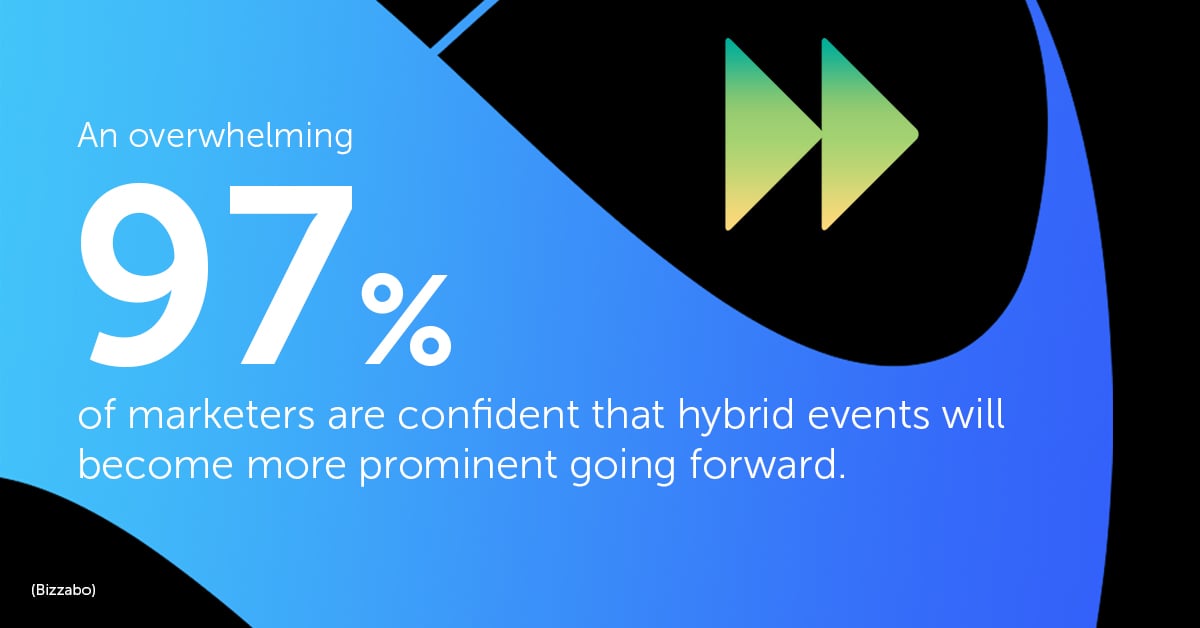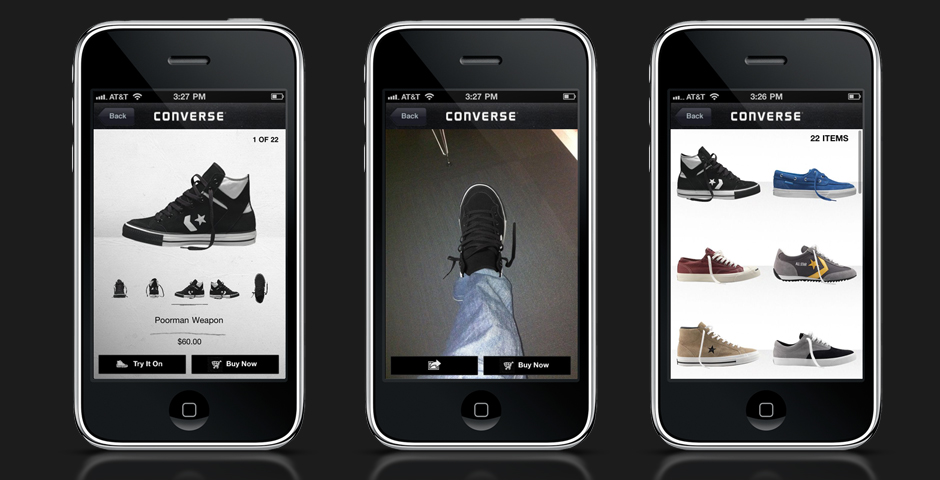Hybrid events are becoming the new standard in the event industry. It would have been hard not so long ago to find one that wasn’t a tech-based conference or a corporate business event. Today, however, with the rise of meetup groups and the increasing popularity of speaker series like TED Talks, there is plenty of room for various hybrid events. These changes indicate that people rely less on physical locations to get things done and more on connecting digitally.
Sure enough, the majority of our clients admit that although they are counting down the days until live events return, they're also looking to incorporate the hybrid model moving forward. After all, no other event solution provides an opportunity to explore, learn, create, share, and interact with your audience and actually engage with them in real life - not at this scale, anyway.
But, you need to plan for them differently than a typical face-to-face conference. This article takes a deep dive into the hybrid model complexities and offers 5 essentials to keep in mind when planning a hybrid event.
Why Hybrid Events are the Future
As digital marketing becomes an even more significant part of our world, people will be looking to attend events that offer more than just a simple presentation. They will want to get information from speakers that they can directly apply to their businesses. They will want to increase their connections within relevant networks and industries. Hybrid events offer all of this thanks to features like online event registration, live-streaming video, polls, workshops, breakout sessions and live Q&As.

And that's not the end of it, either. With hybrid events, you really do get the best of two worlds - the in-person and digital components blend into one, unforgettable experience for your attendees. Let's take a closer look at what makes hybrid events so appealing:
- Increased attendee reach. With travel and accommodation costs out of the picture, you increase your reach from local to global. Hybrid events are extremely convenient for those who live far away from the city where the event is being held or can't attend due to other commitments, enabling more people to participate in the experience.
- Flexibility. Nothing will ever replace the feel of face-to-face events, but with hybrid events, there's no need to replace anything. Attendees finally have the option to choose whether they want to participate in-person or tune in online.
- More powerful sponsorship opportunities. With the increased attendee rates come with more lead generation opportunities, which is one of the main reasons companies decide to sponsor events. Additionally, sponsors and exhibitors are no longer limited by physical restrictions when it comes to showcasing their marketing collateral.
5 Hybrid Event Essentials to Keep in Mind
1. Plan for monetization, not just your budget
It's only natural to want your hybrid event to be as profitable as possible. However, with the event industry's current state due to COVID-19 restrictions, event profitability hasn't been the biggest priority for many companies; the main focus has been on making the event happen. That's not to say hybrid and virtual events cannot be monetized because, with the right strategy, they absolutely can.
![]()
Start by selling sponsorship packages and in-platform advertising opportunities. Hybrid events offer immense value for sponsors and exhibitors due to the increased number of participants and the fact they can interact with attendees, regardless whether they're tuning in online or in-person. Read one of our recent articles on how to make money hosting virtual events to find out more.
2. Facilitate both audiences
The most common pitfall of hybrid events is planning for a live event with added digital components. Please understand that this is not the case of simply live streaming sessions and keynote speeches - otherwise, you'll deliver a truly terrible experience for online attendees.
A successful hybrid event requires two strategies: one for live participants and one for people joining in virtually. Both audience groups must be provided with networking and interaction opportunities, such as chat rooms, discussion groups or in-session polling. It's also crucial to enable live and virtual attendees to meet and interact together.
3. Keep the content engaging
With different audience groups come different sets of expectations. Attending an event in-person is almost like a ritual - you book a time off, leave work and everyday life behind to be able to focus entirely on the day or two ahead of you. It's almost like going on a small holiday! Naturally, live attendees tend to be more relaxed and perhaps more forgiving when it comes to long keynotes or minor technical issues.
The same cannot be said about virtual events. You're most probably at home, trying to juggle work and personal life while attempting to take part. Understandably, your attention is divided and long sessions is not something you want. Therefore, when planning a hybrid event, consider different forms of engaging content for both audiences - short and easily consumable for virtual and longer for live participants.
4. Choose the right platform
It goes without a saying that your choice of the virtual and hybrid event platform can make or break the event. Since this is a direct and only way for online attendees to participate in the conference, there's no room for error - you have to choose the absolute best.
Look for platforms that offer seamless navigation, intuitive design, networking and interaction features and of course, attendee behaviour analytics. If you're interested to see Nextech AR virtual experience solutions, click here to schedule a demo.
5. Rehearse
While you can't predict all the things going wrong during your hybrid event, you certainly can prepare for when they do. Doing a test run with all your equipment prior to the event allows you to identify any weak spots such as lights or audio before the big day. Technical issues are not uncommon during events but it's in your power to plan for a quick way to solve them.
If You're Not Prepared, Your Hybrid Event Won't Work
Hybrid events have been on the rise for quite some time now - and no wonder why. They offer a multitude of benefits compared to regularly run in-person events themselves or their online events counterparts.
When it comes to planning a hybrid event, you always have to keep in mind you are dealing with two different audiences. There's always the challenge of creating an engaging experience for virtual attendees and keeping in touch with those who may not be ‘tech savvy’ or familiar with online platforms.
There's a range of ways to incorporate the online and on-site experience when you are having a hybrid event. Remember that how you combine the two is entirely up to you, just as long as you create a cohesive experience for all your participants.
Learn how a hybrid can help your company reach its event goals and increase revenue! Reach out today and speak to one of our sales representatives to see how our virtual events platform can help grow your business!







